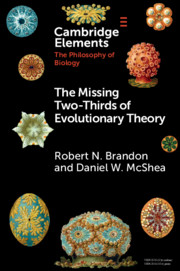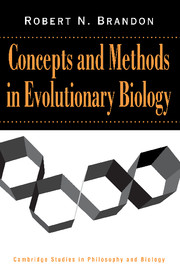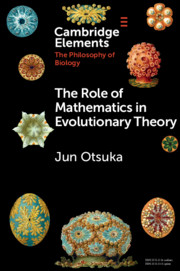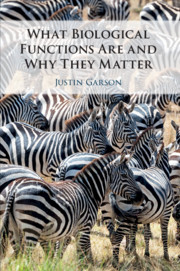The Missing Two-Thirds of Evolutionary Theory
£17.00
Part of Elements in the Philosophy of Biology
- Authors:
- Robert N. Brandon, Duke University, North Carolina
- Daniel W. McShea, Duke University, North Carolina
- Date Published: March 2020
- availability: Available
- format: Paperback
- isbn: 9781108716680
£
17.00
Paperback
Other available formats:
eBook
Looking for an inspection copy?
This title is not currently available on inspection
-
In this Element, we extend our earlier treatment of biology's first law. The law says that in any evolutionary system in which there is variation and heredity, there is a tendency for diversity and complexity to increase. The law plays the same role in biology that Newton's first law plays in physics, explaining what biological systems are expected to do when no forces act, in other words, what happens when nothing happens. Here we offer a deeper explanation of certain features of the law, develop a quantitative version of it, and explore its consequences for our understanding of diversity and complexity.
Customer reviews
Not yet reviewed
Be the first to review
Review was not posted due to profanity
×Product details
- Date Published: March 2020
- format: Paperback
- isbn: 9781108716680
- length: 75 pages
- dimensions: 230 x 153 x 5 mm
- weight: 0.18kg
- availability: Available
Table of Contents
1. The Zero-Force Evolutionary Law
2. What the ZFEL is not
3. The ZFEL quantified
4. What the ZFEL means for biology.
Sorry, this resource is locked
Please register or sign in to request access. If you are having problems accessing these resources please email [email protected]
Register Sign in» Proceed
You are now leaving the Cambridge University Press website. Your eBook purchase and download will be completed by our partner www.ebooks.com. Please see the permission section of the www.ebooks.com catalogue page for details of the print & copy limits on our eBooks.
Continue ×Are you sure you want to delete your account?
This cannot be undone.
Thank you for your feedback which will help us improve our service.
If you requested a response, we will make sure to get back to you shortly.
×



